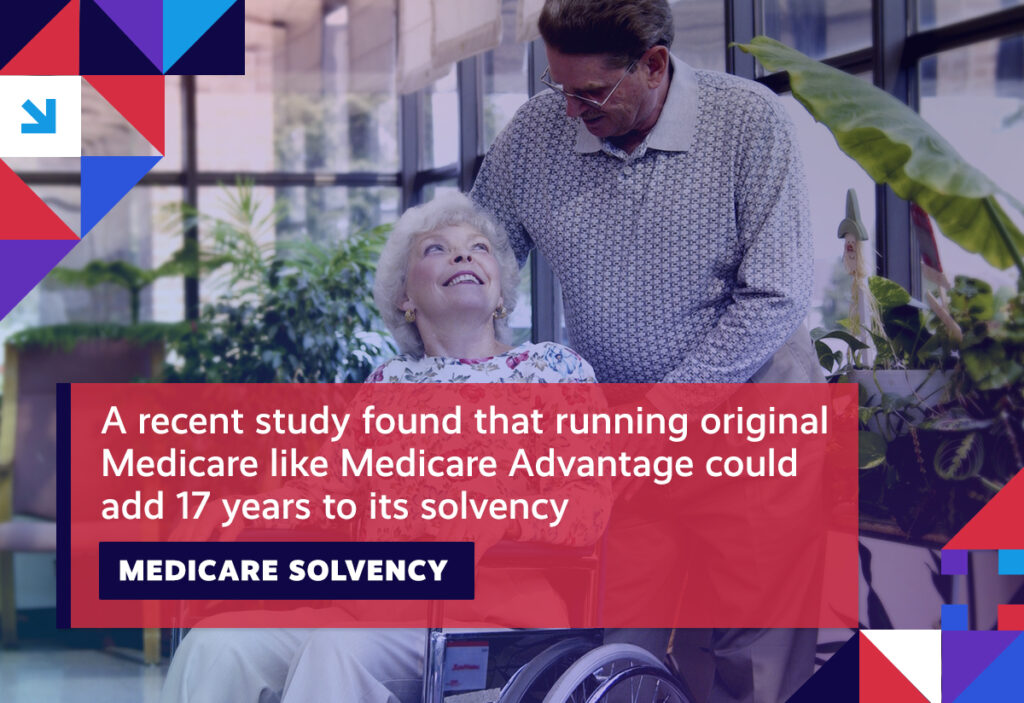A quick roundup of the issues driving the healthcare reform conversation.

Week in Review
MEDICARE ADVANTAGE Lawmakers defend Medicare Advantage.
Quick takeaway: A bipartisan group of Senators urge the Administration to protect and strengthen the Medicare Advantage (MA) program.
Digging deeper: Ahead of the Centers for Medicare & Medicaid Services (CMS) releasing its annual proposed changes to how MA is funded and administered, 61 Senators – led by Sens. Catherine Cortez Masto (D-Nevada), Tim Scott (R-South Carolina), Gary Peters (D-Michigan), and Shelley Moore Capito (R-West Virginia) – sent a letter to the agency, urging them to maintain “payment and policy” stability in the program.
What it means: The MA program finds itself the target of a growing amount of political angst, despite overwhelming support from beneficiaries enrolled in Medicare Advantage plans, who not only continue to voice high satisfaction with their plans, but say they’re looking to lawmakers to protect the program.
Up next: As expected, CMS released its proposed changes to MA last week. Be sure to keep an eye out for how you can raise your voice to help protect the 32 million Americans enrolled in the program from higher costs, decreased access, and fewer benefits.
Rx COSTS Drugmakers’ pricing practices and anti-competitive tactics drive up healthcare costs.
Quick takeaway: A growing body of research undermines Big Pharma’s ongoing efforts to distract from who’s really to blame for high drug prices.
Digging deeper: The numbers speak for themselves:
- Pharmaceutical manufacturers’ patent abuse increased costs by more than $40 billion in just one year
- Patent thickets on just five drugs cost over $16 billion in a single year
- Unjustified price hikes on just eight drugs cost an additional $1.2 billion in 2022
- Between 2006 and 2020, drugmakers consistently increased prices above the rate of inflation
- 775 drugs have already seen price hikes in 2024
- The median launch price for new drugs in 2022 was over $220,000
What it means: The data, while undeniably alarming, serves as an important reminder that drugmakers are responsible for out-of-control drug prices – and, voters are looking to lawmakers to hold the industry accountable.
SURPRISE BILLING The No Surprises Act prevented millions of surprise medical bills.
Quick takeaway: Through the first nine months of last year, consumers were protected from 10 million surprise medical bills.
Digging deeper: A new survey estimates that more than one million surprise medical bills were prevented each month through September of 2023.
Additionally, nearly 80 percent of disputed claims were resolved before triggering the independent dispute resolution (IDR) process, which sits at the center of so much of the opposition to the rule.
Before the No Surprises Act (NSA) was enacted, CMS estimated that 17,000 claims would go to IDR each year. But, since going into effect in 2022, the actual number has blown way past expectations.
Still, the vast majority of claims have been resolved without going to IDR.
What it means: While numerous legal challenges – initiated by providers – have worked to erode the consumer protections put forward by the NSA, it’s hard to deny that the rules are protecting patients as intended.
UNNECESSARY CARE Prior authorization plays a critically important role in protecting patients and our healthcare system.
Quick takeaway: Care coordination is a necessary tool that guards against waste, fraud, and abuse, while ensuring better patient safety and outcomes.
Digging deeper: It’s estimated that 30 percent of all healthcare spending in this country is unnecessary. Not only that, a lot of the care driving that spending can also be harmful.
In fact, low-value care costs our healthcare system $340 billion every year. Meanwhile, 87 percent of doctors reported negative health impacts as a result of low-value care.
What it means: With healthcare costs on the rise, a lot of attention is being paid to what’s driving those costs, including increased legislative focus on prior authorization.
Stakeholders are working to remind lawmakers and regulators in Washington and in state capitals across the country that prior authorization is not only evidence-based, but, as the data shows, promotes safe and affordable care for patients.
Spotlight

| You can keep up with the latest by following the Health Action Network on X and by liking us on Facebook. And, be sure to check us out on LinkedIn, too. As always, let us know if there’s something you’d like to see covered in a future newsletter. |
The Health Action Network includes everyday Americans—families, workers, businesses, patients, providers, neighbors, and friends. We are working together because we support market-based solutions that offer better healthcare choices and help build a stronger economy. The Health Action Network is an Elevance Health, Inc., initiative.
